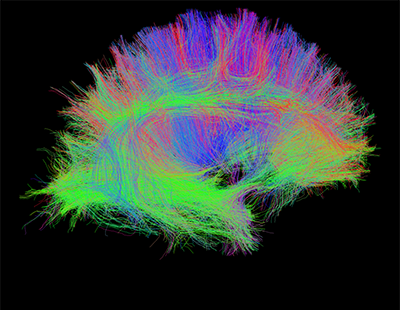Centre of excellence to tackle MS

Multiple sclerosis research is to be boosted by new funding for a research hub dedicated to tackling the disease.
A world-leading centre of excellence at the University of Edinburgh is accelerating the search for treatments for MS, an incurable degenerative disease that affects the brain.
The MS Society Edinburgh Centre for MS Research will support attempts to develop life-changing treatments and provide training for the next generation of research scientists.
The research is made possible by £1.85m of investment from the MS Society.
More than 130,000 people live with MS in the UK. The condition affects the brain and spinal cord and can lead to vision, movement and cognitive problems.
There are no treatment options to stop or significantly slow so-called progressive symptoms, which can lead to long-term disability and loss of independence in day-to-day tasks.
Much of the research at the centre will focus on understanding myelin – the protective layer surrounding our nerves that is affected in MS.
Scientists will also create a drug discovery pipeline and screen drugs that could prevent neurodegeneration.They will also trial advanced brain imaging techniques in people with MS to test the effectiveness of drugs being tested in clinical trials.
The MS Society Edinburgh Centre for MS Research will collaborate with a sister centre at the University of Cambridge.
Professor Siddarthan Chandran will co-lead the work at the MS Society Edinburgh Centre for MS Research alongside Professors David Lyons, Anna Williams and Adam Waldman.
Professor Siddharthan Chandran, Director of Centre for Clinical Brain Sciences said, ” This pivotal investment from the MS Society will allow us to lead vital work in the study of nerve damage, which causes long-term disability in people living with MS. We’ll be developing new ways to measure it, identifying new targets for neuroprotective drugs, and testing out the most promising in the lab. Our ultimate goal is that five years from now we’ll have substantially improved our understanding, and hopefully be beginning to translate this into new treatments that slow, stop or even reverse disability progression in MS.”
Professor Anna Williams, Personal chair of Regenerative neurology added, ” It is very exciting to have the MS society UK Edinburgh Research Centre here at the University of Edinburgh co-directed by Profs Siddharthan Chandran, David Lyons, Adam Waldman and myself. We have three parts to our project plan – first to understand more about neurodegeneration in progressive MS, second to screen drugs to prevent neurodegeneration in a drug discovery pipeline and third to find better imaging measures of neurodegeneration in people with MS, so that it will be easier to see if these drugs work. We are looking forward to working with the MS Society UK and their other centre at the University of Cambridge to get treatments to people with progressive MS.”
One pioneering project is a new drug-testing platform being developed by researchers in Edinburgh.
The platform will use robots to screen thousands of possible treatments on zebrafish with an MS-like condition. Potential treatments will also be tested on MS cells grown in a dish in the lab and on human brain tissue samples. Using all these different methods together will help researchers prioritise treatments with the best chance of success in clinical trials.



